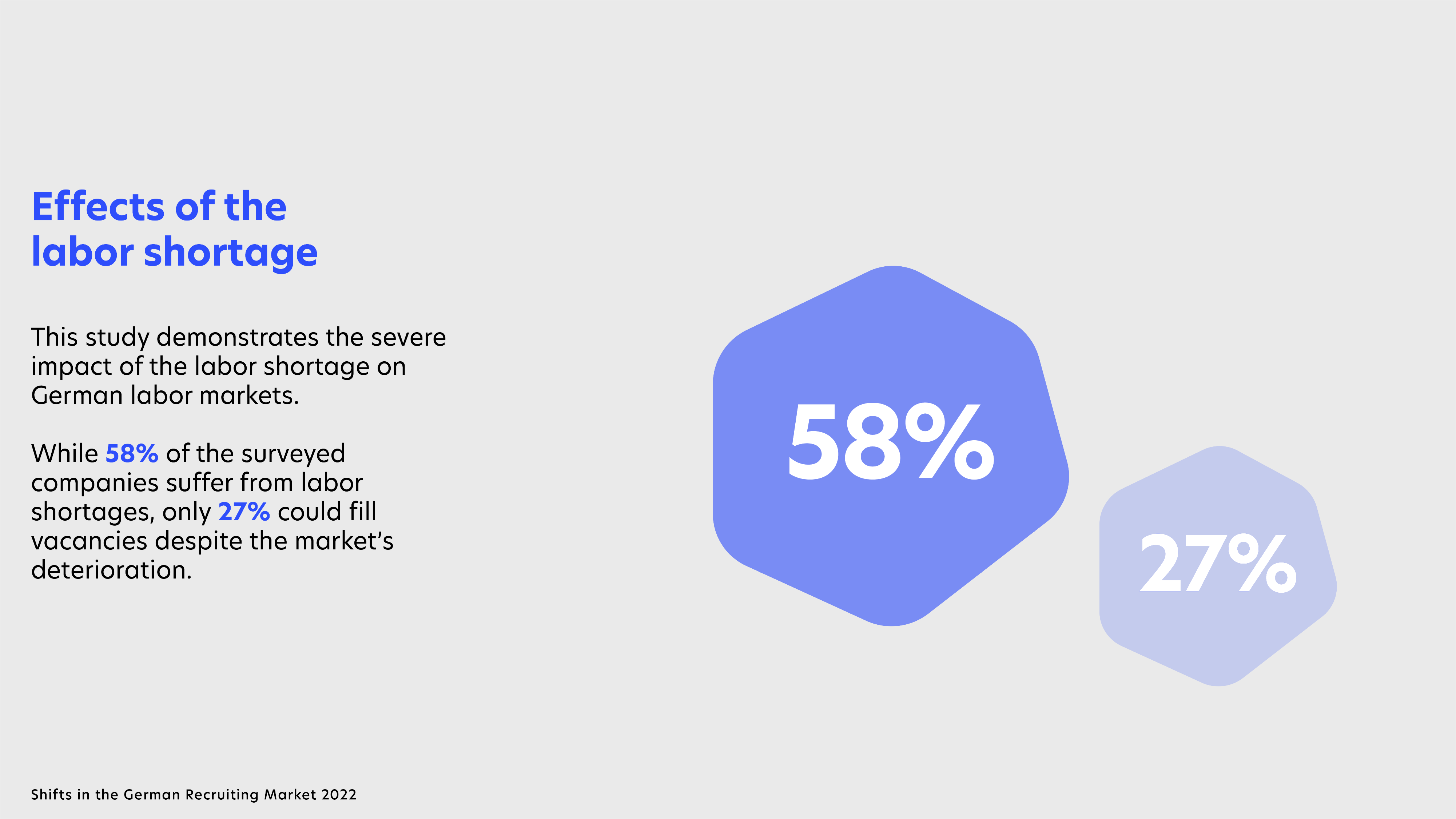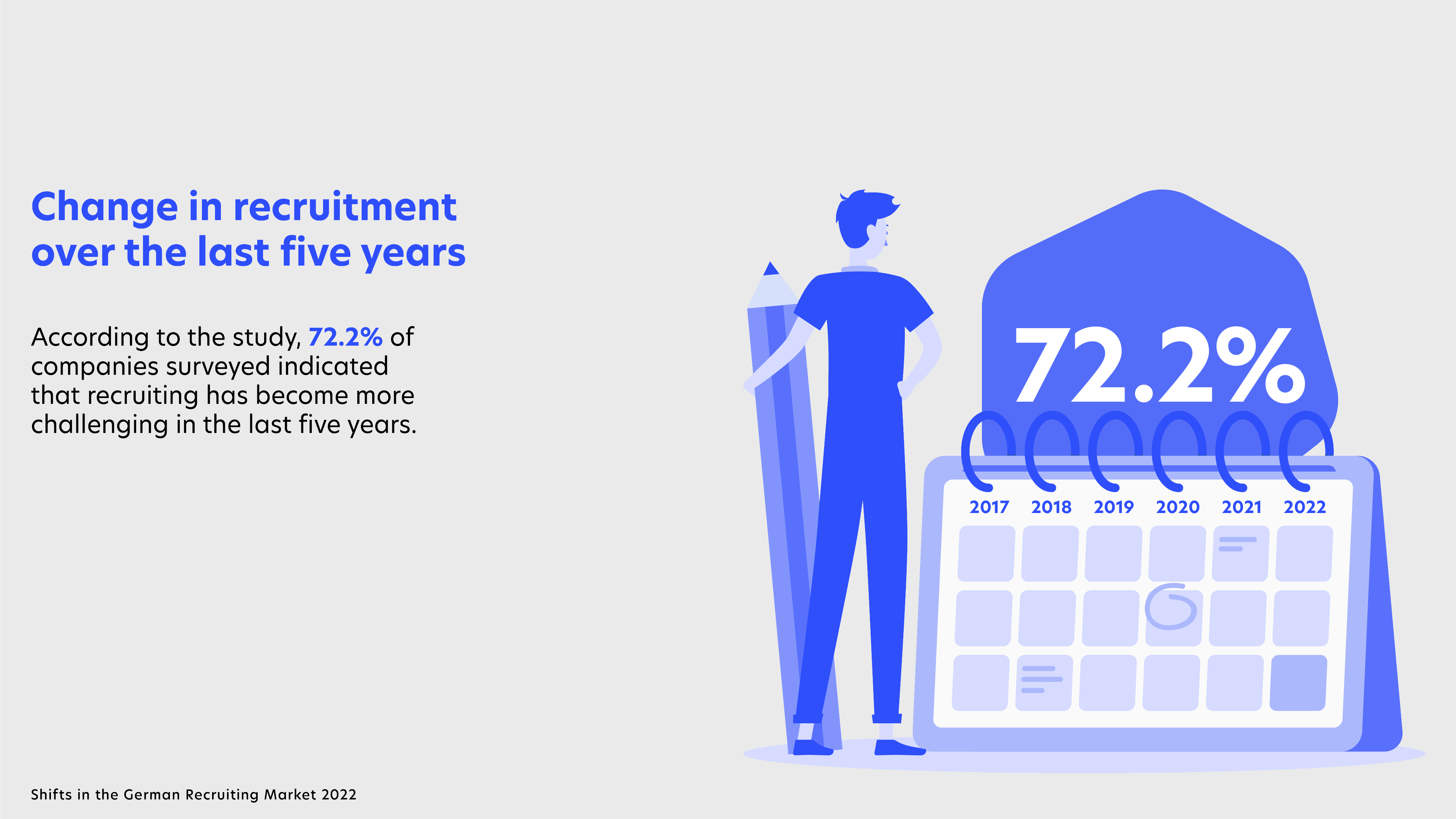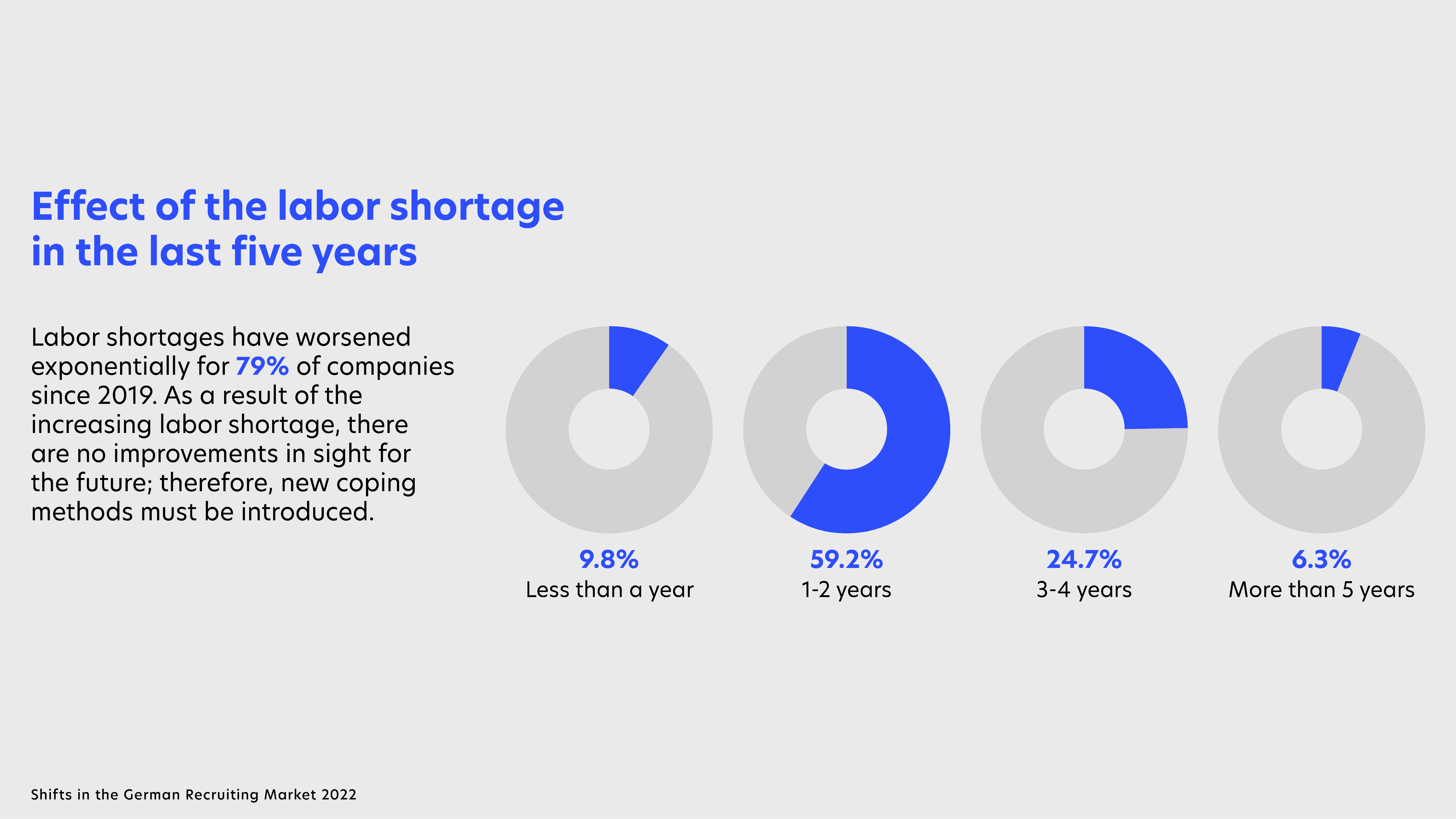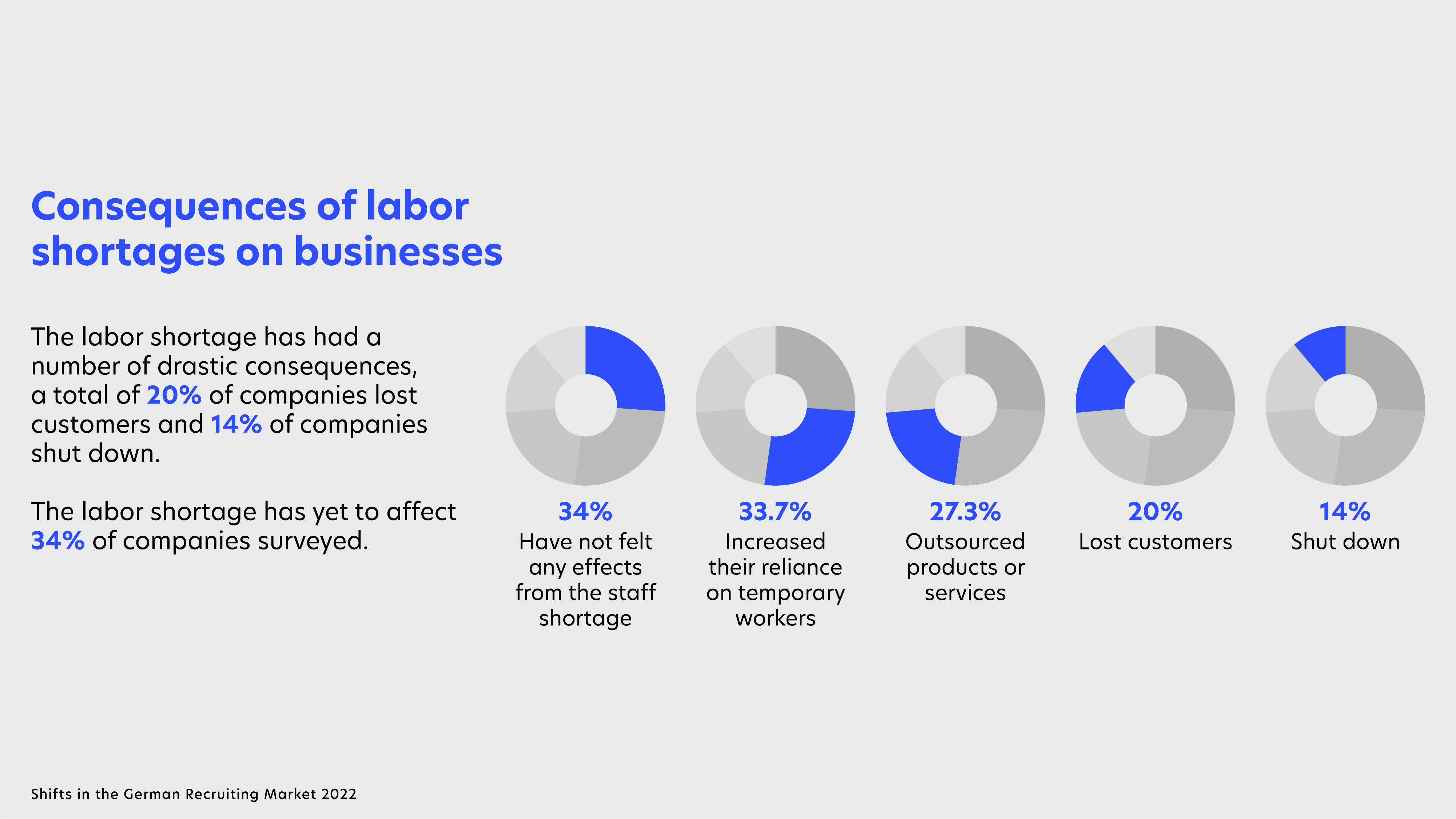
Germany's Labor Shortages: Causes and Effects
There are more than 2.5 million unemployed people in Germany. Meanwhile, almost 2 million skilled workers are needed in the construction, IT, healthcare, and hospitality industries. How is the labor shortage affecting German companies, and what are the reasons for it?
In recent years, the German labor market has undergone significant changes, one of the reasons being that digitalization has changed many business methods, resulting in an increased need for qualified specialists. While these skilled workers are in high demand, there is a noticeable shortage, posing a big challenge for many businesses.
This is also evident from the study "Shifts in the German Recruiting Market 2022," which concluded that 58% of the companies surveyed suffer from a labor shortage. Several reasons have contributed to the development and the effects companies face.

The need for more employees can be attributed to demographic change, as fewer and fewer young skilled workers are available due to the decline in the birth rate and the general aging of the population. Meanwhile, the need for qualified employees is steadily increasing.
Globalization also contributes to the acute personnel shortage, increasing competition for skilled workers. Companies today are more interconnected and compete directly for the best talent.
At the same time, employees expect more flexibility and better working conditions, making it even more challenging to recruit qualified candidates.
According to the study, 72.7% stated that recruitment has become more challenging in the last five years. There is an increase in the demand for trained professionals and employee needs. There is an imbalance between supply and demand. This shortage is particularly severe in the construction, IT, healthcare, and hospitality industries.

The current shortage of skilled workers from the perspective of German companies
In the study, 300 companies were asked to comment on challenges associated with recruiting and the shortage of skilled workers.
The findings reveal that more than traditional recruitment methods are needed to meet companies' needs for suitable candidates. This is not a new problem; 25% of companies experienced this shortage around four years ago. 59.2% of companies stated that they have been suffering from a labor shortage for approximately two years; the pandemic played a large part in the deterioration of the situation.

The requirements for skilled workers have changed significantly in recent years. Today, companies are increasingly looking for employees who have social and digital skills in addition to their technical expertise. However, they often find it difficult or unwilling to meet the requirements of qualified candidates. Yet, due to the shortage of personnel, candidates can afford to be more selective in their choice of employer - in stark contrast to previous generations.
Effects of the labor shortage on Companies
The current shortage of skilled workers has far-reaching effects on companies. Vacant positions still need to be fulfilled for longer, resulting in lost productivity and increased strain on the existing workforce. In addition, the lack of trained employees can lead to companies being unable to implement projects and ideas because they need more training and expertise.
According to the study, 33.7% said they had to increase the use of temporary workers due to the staff shortage, while 27.3% outsourced their products or services. 20% of the companies surveyed were forced to give up customers, and 14% had to reduce or shut down operations.

What can companies do to recruit and retain talent?
Companies must update their recruiting methods to find qualified candidates more efficiently and faster. A candidate-driven market has replaced an employer-driven market, and companies must adapt to remain successful.
Reducing skills gaps is crucial to counteract the shortage of skilled workers, which can be achieved through targeted training. An inclusive work environment and appreciation of new generations of skilled workers are also essential.
To be considered an attractive employer, companies must respond to employees' needs, offer career development opportunities, and maintain an excellent work-life balance.
The study "Shifts in the German Recruiting Market 2022" offers further insight into the current state of the German labor market and the need to adapt to the ongoing changes in recruiting.
Are you looking for ways to change your recruitment strategy? Here's how we can help.
Want to learn more? Click on the link below to download the study.



